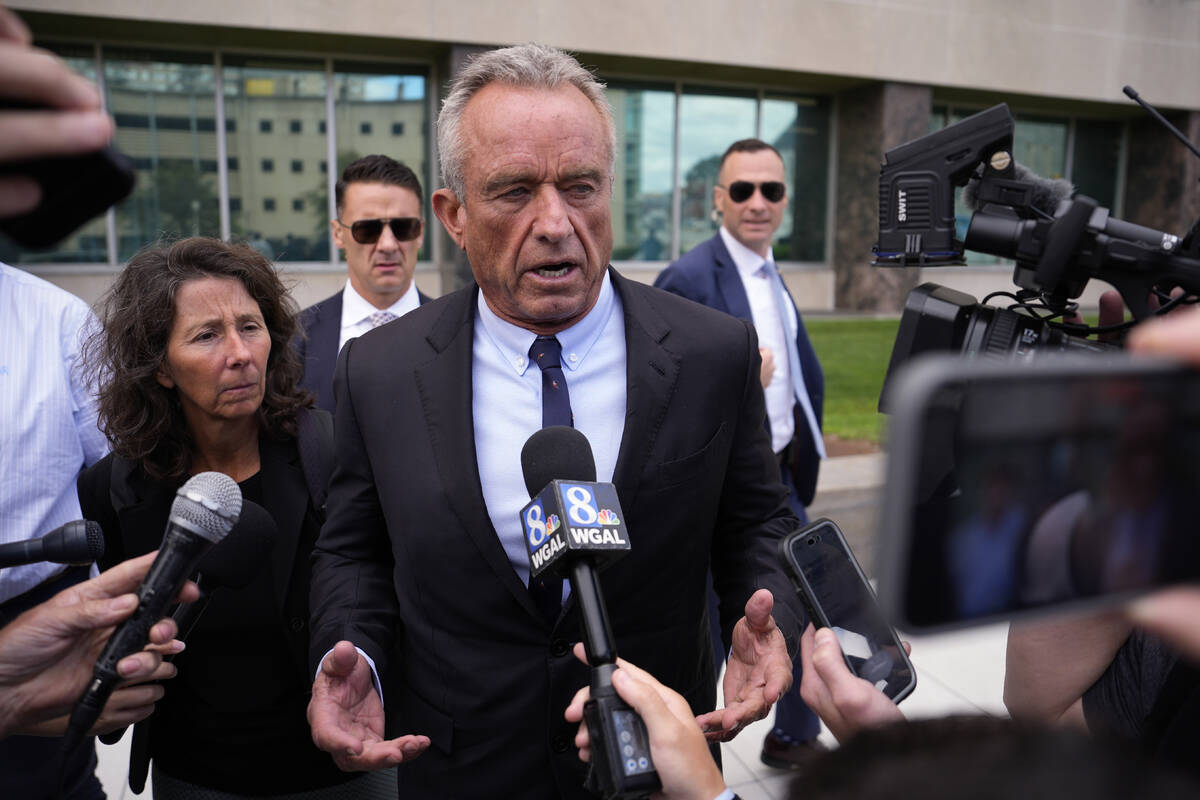VICTOR JOECKS: What RFK and my wife convinced me of
Robert Kennedy Jr. and my wife have done the impossible — make me want to buy organic food.
Kennedy’s long-shot presidential bid came to an end on Friday. Third-party candidates face a nearly impossible task. After Democrats forced President Joe Biden to give up the nomination, Kennedy’s polling plummeted.
While he didn’t win the election, Kennedy used his campaign to draw attention to the “chronic disease epidemic.” When you look at health trends, it’s hard to miss.
U.S. children born in 1992 had an autism rate of 1 in 150. For those born in 2012, it was 1 in 36. In the late 1950s, the U.S. National Health Survey put the rate of diabetes at 9 cases per 1,000 people. Today, the House Diabetes Caucus says there are 93 cases per 1,000. More than 70 percent of adults are overweight, with around 42 percent being obese. That’s triple what it was 60 years ago.
There have been amazing advances in fighting cancer. Death rates from the disease have dropped steadily. The same can’t be said for new cancer cases. Since 2005, they’re up more than 45 percent. The U.S. population has grown by less than 15 percent.
There isn’t room to detail the rapid increase in things like ADHD, infertility and depression.
In 15 years of debate about Obamacare, there has been comparatively little talk about Kennedy’s insight. If Americans were healthier, paying for health care would be a much easier task. Instead, health expenditures have grown rapidly. In 1984, the United States spent under $1 trillion in inflation-adjusted dollars on health care. In 2022, it was more than $4.4 trillion.
The country is spending more on health care and getting sicker. That’s a problem. But it isn’t a unique one. A similar thing has happened in education. In response to low achievement, Nevada has spent decades increasing education spending. It doesn’t work in education because the system is broken. The obvious parallel is that something is broken in health care, too.
Kennedy doesn’t receive credit for pointing this out. Instead he’s routinely dismissed as a kooky conspiracy theorist. During the pandemic, Instagram shut down his account. The Biden White House and other Democrats even asked social media companies to censor him. Now we know that much of the official narrative was wrong. The virus almost certainly came from a lab leak. COVID vaccines don’t prevent infections — just ask the thrice-infected Anthony Fauci. Masking was a joke. The Great Barrington Declaration had it right.
Yet the national mainstream media doesn’t seek to destroy the reputations of the many “experts” who spread their own conspiracy theories and suppressed the truth.
With those thoughts stewing in the background, I listened to Tucker Carlson interview siblings Casey and Calley Means. She trained to be a surgeon at Stanford. He’s a former lobbyist for pharmaceutical and food companies. They left those lucrative careers, convinced many diseases stem from dietary choices and environmental toxins. I intend to read their book “Good Energy.”
They laid out steps to better health — such as avoiding processed foods and buying organic — my wife has become more interested in recently. She has struggled with Postural Orthostatic Tachycardia Syndrome and had some other health challenges. She’s convinced food quality has a direct impact on health.
A few years ago, I would have been quite skeptical. Why pay more for produce that doesn’t look as appealing? Food with high fructose corn syrup tastes great. Processed meals are so convenient. But as is often the case, it turns out my wife was right.
You can’t control governmental policy, but you can take steps to improve your health. If you see me buying organic apples or — gulp — shopping at Whole Foods, blame my wife and RFK Jr.
Contact Victor Joecks at vjoecks@reviewjournal.com or 702-383-4698. Follow @victorjoecks on X.
Correction: A previous version of this column misspelled the name of Calley Means.























